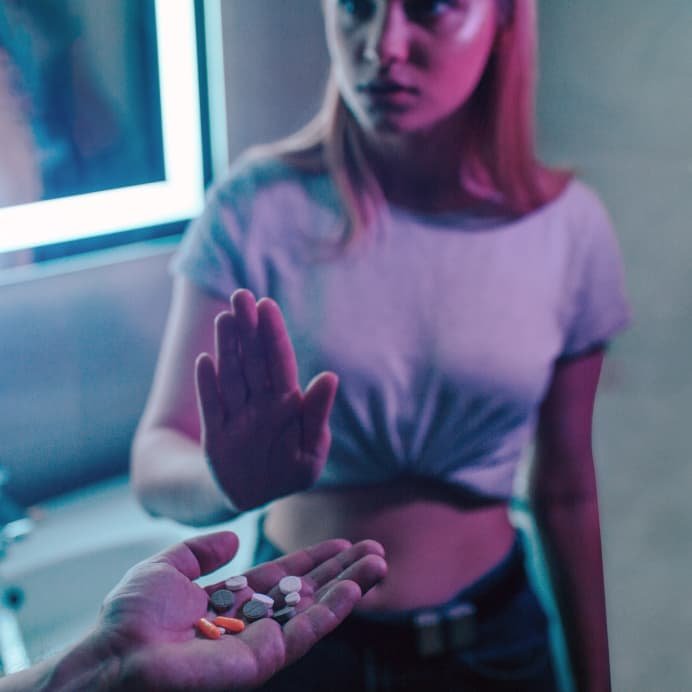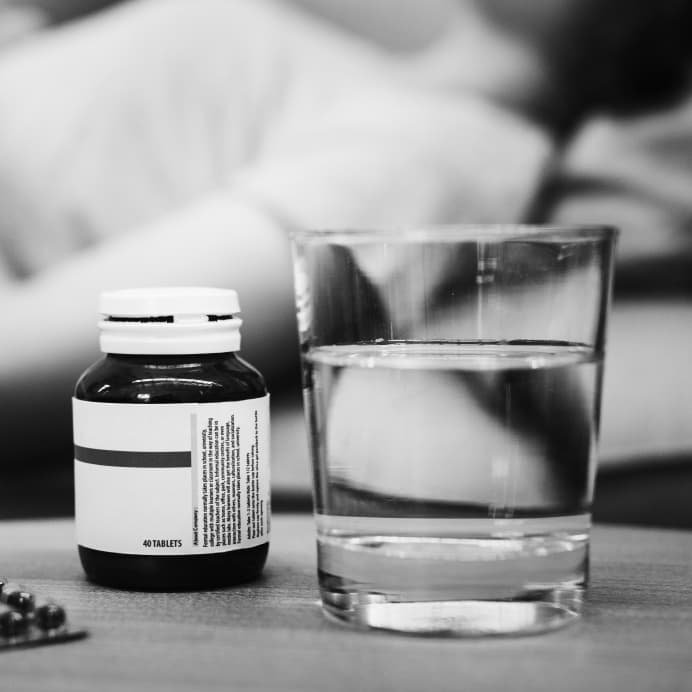Vicodin Addiction Treatment
Vicodin Addiction Treatment
Understanding and Overcoming Vicodin Addiction: Signs and Health Implications
Vicodin addiction stems from the dependence on a prescription pain medication containing hydrocodone and acetaminophen. While legally prescribed for pain relief and euphoria, extended use or misuse can lead to addiction. Overcoming Vicodin addiction necessitates commitment, support, and a willingness to instigate positive changes.


Warning Signs of Vicodin Addiction
Identifying these warning signs is crucial for acknowledging the issue and seeking appropriate Vicodin abuse treatment:
Increased Tolerance: Gradual development of tolerance to Vicodin, requiring higher doses for desired effects.
Withdrawal Symptoms: Experience of withdrawal symptoms like anxiety, restlessness, muscle aches, insomnia, nausea, and sweating when attempting to reduce or stop Vicodin use.
Compulsive Use: Intense urge to use Vicodin, persisting even when not medically necessary, despite potential negative consequences.
Preoccupation with Vicodin: Significant time spent thinking about obtaining and using Vicodin, planning the next dose.
Concealing Use: Efforts to hide Vicodin use from others, maintaining secrecy about the addiction.
Social Isolation: Withdrawal from social activities, leading to isolation from friends and family.
Health Complications of Vicodin Addiction
Prolonged misuse of Vicodin can result in severe health complications, negatively impacting overall well-being:
Respiratory Problems: Opioid properties in Vicodin may suppress the respiratory system, causing shallow breathing, respiratory depression, and an increased risk of respiratory infections.
Liver Damage: Acetaminophen in Vicodin can lead to liver damage, especially when taken in high doses or combined with other acetaminophen-containing substances. Chronic abuse can result in hepatotoxicity, liver failure, and related complications.
Gastrointestinal Issues: Disruption of normal gastrointestinal function, causing problems such as constipation, nausea, vomiting, and stomach pain. Chronic constipation may lead to bowel obstruction or intestinal damage.
Cognitive Impairment: Long-term Vicodin use can impair cognitive function, affecting memory, attention, concentration, and decision-making abilities.
Hormonal Imbalances: Disruption of normal hormonal balance, resulting in decreased libido, sexual dysfunction, irregular menstrual cycles in women, and fertility issues.
Increased Pain Sensitivity: Paradoxically, prolonged Vicodin use may lead to hyperalgesia, increasing sensitivity to pain and perpetuating a cycle of escalated use.

Why Choose 911 Detox recovery for Alcohol Rehabilitation?
Struggling with alcohol addiction can feel isolating and overwhelming, but you don’t have to go through it alone. At 911 Detox Center, we offer a transformative journey towards lasting sobriety that goes beyond just detox.

Detox
Our journey begins with a safe and comfortable, medically supervised detox. We understand the challenges of withdrawal, so we’ll be by your side, managing symptoms and addressing underlying triggers.
Residential
Immerse yourself in a supportive and structured program designed for healing and self-discovery. Through individual therapy sessions, you’ll delve deeper into your story, gaining insights and tools for lasting change.
Recovery Maintenance
Our commitment extends beyond treatment. We offer ongoing support groups, connecting you with others who understand your struggles and celebrate your successes.
Embark on your journey to recovery from Vicodin addiction by seeking support from a reputable Vicodin rehab in Los Angeles. Take the first step toward a brighter future by accessing Vicodin addiction counseling and guidance.

